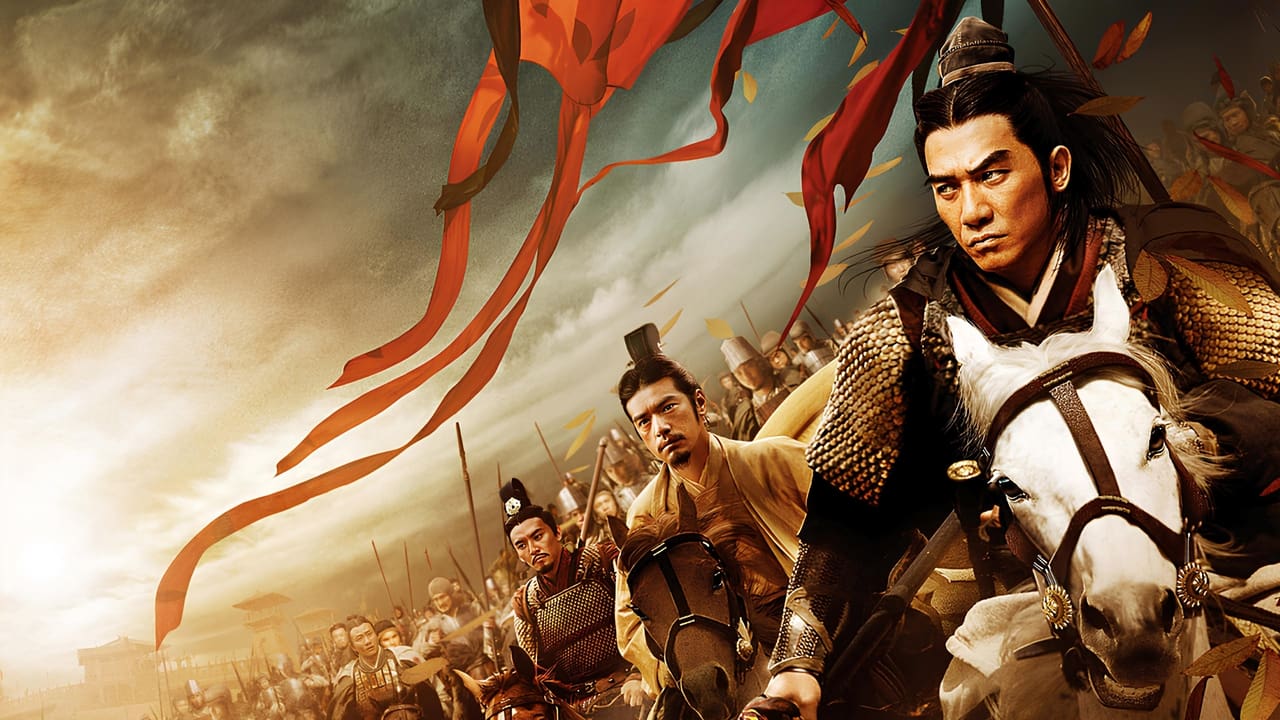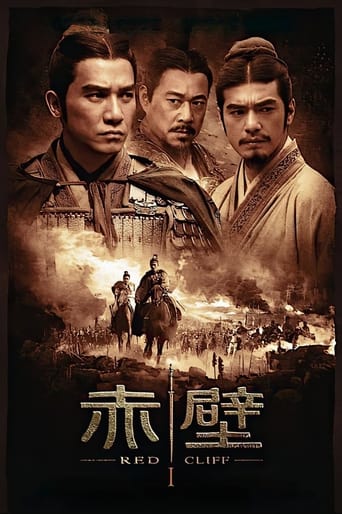

An epic masterpiece! From the acting to the music, photography and visuals. An all-round incredible production and an instant favorite! The film never ceases to amaze! The action sequences are absolutely fantastic, and the war fighting scenes were breathtakingly good!
... View MoreRed Cliff takes place in the 3rd century China, just prior to the legendary Three Kingdoms period. Chancellor Cao Cao is on a campaign to reign in the southern warlords that have risen against the Han dynasty. Or at least that's his official reason for going to war. The southern armies form a coalition against this threat and it all comes down to the Battle of the Red Cliff.The film is directed by the renowned Hong Kong action director John Woo and that definitely shows. The whole film has a great presence throughout, even the abridged Western version I saw to my great shame. The characters have charisma and layers, the action scenes are fantastic and it's larger than life in the best way possible. No way they had these kinds of vast, epic battles in the 3rd century with highly sophisticated formations, war machines, fortifications and tactics, but you don't let that bother you. A movie is allowed to be epic if it is done this well.My only real regret is that I haven't managed to get my hands on the original two-part version, which is almost five hours long. The abridged version is just over two hours and it definitely feels like there are certain things missing. The scope and the grandeur are still there, but there are a lot of characters and not all them are as fleshed out as they perhaps should be. We also seem to move from one battle to another without any great pauses.Still, even this shorter version is definitely worth a watch for all fans of historical epics.
... View MoreA great mass-scale warfare movie. This movie pits a smaller force against a vastly larger force, and of course tactical genius and gorilla warfare is the cement that builds this story. The battle-tactics used in this movie are really impressive and I've never before seen anything like it (and I've watched many warfare movies). The instructions that the commanders yell out really see the direction of the story change. I also like that they used a few female warriors in the movie, because it's too often that you see 'all male casts' and women only running for the hills. You do however see the traditional "godlike protagonists" where a single hero kills 50+ warriors, but that is understandable. In the non-dubbed version of the movie, the actors were very passionate and you could see truly heartfelt acting. This is a really good warfare movie, full of action, 7/10.
... View MoreI was expecting the usual epic battle scenes and much visually stunning cinematography, and I got more than I expected. This film is truly epic and we haven't seen one like it come out of Hollywood for a long time. Sure there have been big budget films, but John Woo is an excellent director and gets the mix of spirituality, ancient Chinese wisdom and the action sequences spot on.The battle scenes are awesome, well worth watching for these alone. The acting is good, nothing amazing, but it doesn't need to be, because it's all about battle tactics and stunning action.Absolutely recommended for everyone, brilliant film.
... View More